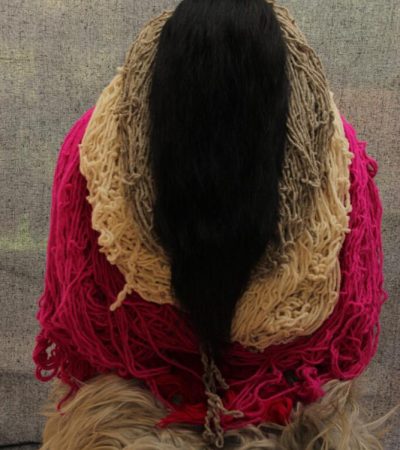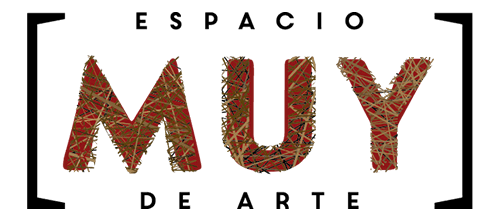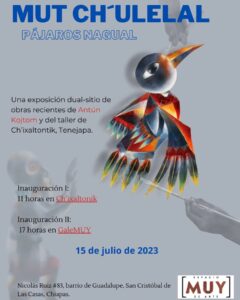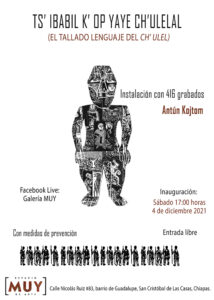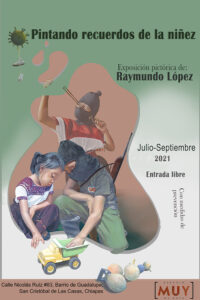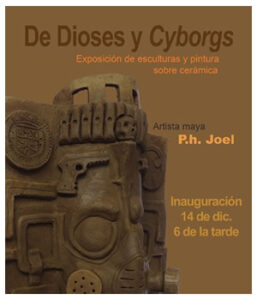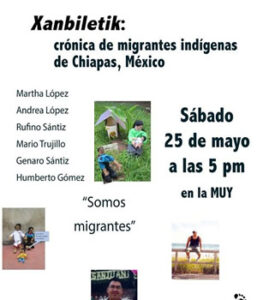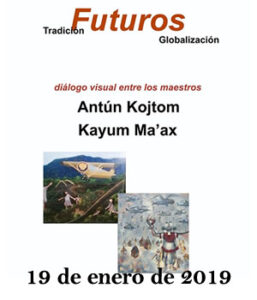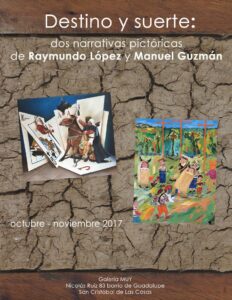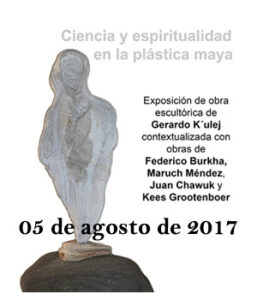Antún Kojtom, un año después de recibir la Medalla Rosario Castellanos, vuelve a su taller con una pasión renovada, que se aprecia en esta nueva...
Decoloniality
For Maya/Zoque artists, decoloniality refers to power and thought. There is a desire to change the way others see us by exploring and giving importance to how we see ourselves. We revalue our knowledge, generating dignity from our identity and questioning the categories imposed with words such as “folklor”, “poor”, “illiterate” and “indigenous” itself.
In the formal experimentation the personal decolonizing struggle can be appreciated. In creating abstract works the person frees him/herself to indigenous forms of expression… and borrows from the canon of Western/universal abstract art. In creating figurative works the indigenous artist appropriates formal languages often of the gentile (or non-indigenous), and continues to express localized contents of his/her choice and aesthetic.
Of course, it is important to mention that there are artists (in particular Maruch Méndez) who invent a figurative-narrative style from their (personal/community) autonomy, which has become generalized in other artists.
Finally, it will be seen that the use of new media – especially performance, video and textile art – opens communication with the contemporary art world, while Mayan and Zoque styles and expressions are invented in these artistic genres.
